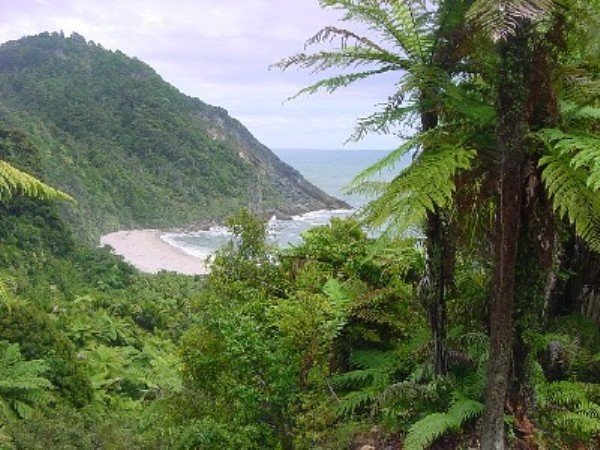This is an interesting quote I found in Earth Circles:
The deepest cause of the present devastation is found in a mode of consciousness that has established a radical discontinuity between the human and other modes of being and the bestowal of all rights on the humans. The other-than-human modes of being are seen as having no rights. They have reality and value only through their use by the human. In this context the other than human becomes totally vulnerable to exploitation by the human, an attitude that is shared by all four of the fundamental establishments that control the human realm: governments, corporations, universities, and religions - the political, economic, intellectual and religious establishments. All four are committed consciously or unconsciously to a radical discontinuity between the human and the nonhuman.
Thomas Berry, The Great Work (New York: Random House, 1999), 4.
Saturday, August 29, 2009
Saturday, August 22, 2009
Arborophobia
What a great word! It was apparently coined by Robin Boyd, an urban critic, and means 'hatred of trees'. You could certainly believe it in the urban Adelaide of today, where people use leave busters and other human-made objects to get rid of the mess made by trees which insist on dropping their leaves and generally doing what trees do. Palms are acceptable because they do not drop leaves and do not send roots into plumbing or lift up house foundations. 'Yuppies' are notorious for loving palms and they abide in many Adelaide gardens, along with the must-have urban pool.
Friday, August 7, 2009
A zen poem by an American - how did he know?
My favourite poems have always been the ones I don't really 'get'. Wallace Stevens' poem 'The Snowman' is one of those and I wish my memory would allow me (or I would give myself time) to learn it off by heart as it is a good one to remind one of the mysteries of life. After it became a favourite, I then found an article that declared Wallace Stevens to be a Zen poet and said why. That made me happy. Here is the poem:
The Snowman
One must have a mind of winter
To regard the frost and the boughs
Of the pine-trees crusted with snow;
And have been cold a long time
To behold the junipers shagged with ice,
The spruces rough in the distant glitter
Of the January sun; and not to think
Of any misery in the sound of the wind,
In the sound of a few leaves,
Which is the sound of the land
Full of the same wind
That is blowing in the same bare place
For the listener, who listens in the snow,
And, nothing himself, beholds
Nothing that is not there and the nothing that is.
The Snowman
One must have a mind of winter
To regard the frost and the boughs
Of the pine-trees crusted with snow;
And have been cold a long time
To behold the junipers shagged with ice,
The spruces rough in the distant glitter
Of the January sun; and not to think
Of any misery in the sound of the wind,
In the sound of a few leaves,
Which is the sound of the land
Full of the same wind
That is blowing in the same bare place
For the listener, who listens in the snow,
And, nothing himself, beholds
Nothing that is not there and the nothing that is.
Tiger sighting
Since going to India in June-July 2009, I have a new respect for William Blake. I saw a tiger (more than one) in a natural environment whilst there, and at first viewing, quite close from an open jeep, tears unpredictably rolled down my cheeks. The best kind of crying.
I don't really know why I had this reaction, but guess it was the power of the beast or perhaps its beauty. Some things are best left unanalysed. So here is the poem. I don't know if William Blake had actually seen a tiger, but regardless, he recognised a higher being played out in its beauty that may be what I reacted to:
The Tyger (from Songs of Experience)
Tyger! Tyger! burning bright
In the forests of the night,
What immortal hand or eye
Could frame thy fearful symmetry?
I don't really know why I had this reaction, but guess it was the power of the beast or perhaps its beauty. Some things are best left unanalysed. So here is the poem. I don't know if William Blake had actually seen a tiger, but regardless, he recognised a higher being played out in its beauty that may be what I reacted to:
The Tyger (from Songs of Experience)
Tyger! Tyger! burning bright
In the forests of the night,
What immortal hand or eye
Could frame thy fearful symmetry?
In what distant deeps or skies
Burnt the fire of thine eyes?
On what wings dare he aspire?
What the hand dare sieze the fire?
And what shoulder, & what art.
Could twist the sinews of thy heart?
And when thy heart began to beat,
What dread hand? & what dread feet?
What the hammer? what the chain?
In what furnace was thy brain?
What the anvil? what dread grasp
Dare its deadly terrors clasp?
When the stars threw down their spears,
And watered heaven with their tears,
Did he smile his work to see?
Did he who made the Lamb make thee?
Tyger! Tyger! burning bright
In the forests of the night,
What immortal hand or eye
Dare frame thy fearful symmetry?
1794
Subscribe to:
Posts (Atom)
